Please join the book launch discussion on the indisputable scientific evidence of the power of prevention.
Register here: https://check-the-fats-booklaunch-tickets.eventbrite.com
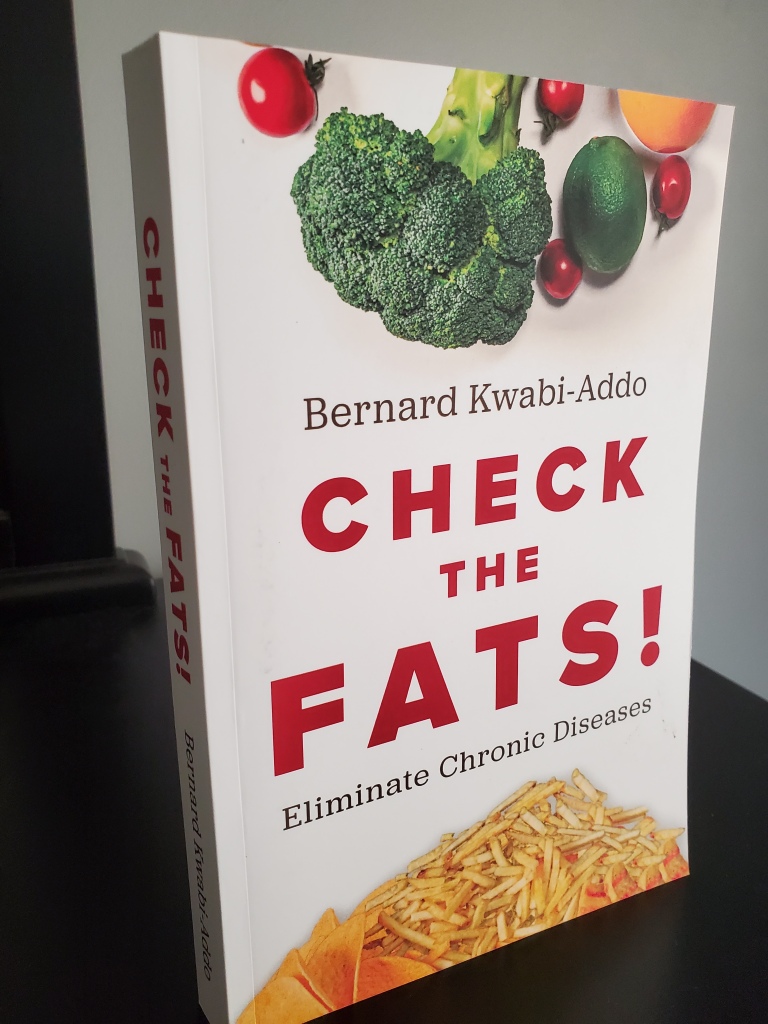
Please join the book launch discussion on the indisputable scientific evidence of the power of prevention.
Register here: https://check-the-fats-booklaunch-tickets.eventbrite.com

I am going to tell you a story about why I believe that rural lifestyle is the best to avoid and eliminate chronic diseases. I grew up in Ghana, W. Africa and as a child would often vacation with grandparents in the village. Lately, I have been reminiscing about those village experiences and I am truly fortunate to be able to compare time spent in the village, with life in urban cities of Ghana, Europe, and the USA.
I believe that those experiences in combination with my profession as a cancer researcher gives me some level of authority to conclude that when it comes to adopting healthy lifestyle in order to prevent and avoid chronic diseases such as coronary heart disease, type 2 diabetes, hypertension and cancer, the rural lifestyle is our best option.
Reflecting on the lifestyle habits of my folks in the village, I vividly remember that they were physically active; they walked everywhere, walked to fetch water about half a mile from house, cut wood for fire, walked three miles to the farm and work all day, cultivating, tiling the land, and harvesting crops and at the end of the day carry foodstuffs back home.
The diet was mostly plant-based, rich in complex carbohydrates mostly tuber, fresh fruits and vegetable, and some consumption of fish, and poultry. Crab meat, snails, and mushrooms were part of the staple diet. They did not consume too much red meat, as red meat was considered luxury foods mostly reserved for big occasions such as Easter or Christmas.
My family was well connected in the community. It was typical for church folks and friends to stop by the house without prior invitation or to discuss challenges on the farm- particularly if they were experiencing poor crop harvest or just to chat about current affairs. I guess this was their form of stress management.
What I did not like back then was the lack of electricity in the village. This meant that folks go to bed very early, as early as 7 pm and woke up equally early at dawn when the cock crowed. This seems unfathomable today to be going to bed at such ungodly time, but I have come to realize that these villagers going to bed at sundown and waking at sun rise were truly experiencing restorative sleep.
The scientific community knows that exposure to too much artificial light disrupts our circadian rhythm and this in the long term can adversely affect our health. My folks spent little on healthcare, however they used herbs for colonic irrigation as preventative measures and considered that a good gut health represented overall health. Now we appreciate the role of good gut microbiome health in avoiding sickness.
They would also use herbs for to cure fever, headaches, and other ailments. Consequently, it was common for people to live well into their eighties and nineties with no heart problems or diabetes or cancer, and it is not too uncommon to have centenarians in some families including my own family. The lifestyle of my village folks is similar to the blue zones of this world where there are centenarians who are healthy, active, and vital members in their communities.
Clearly, the lifestyle choices of these individuals can be distilled down to the way they move, how thy handle stress and what they eat and drink and whether or not they feel a sense of belonging and purpose. Overall, their default lifestyle is making choices that decreases the risk of chronic diseases and increase wellbeing and longevity.
Fast forward to folks living in the big cities of Accra, London, or Washington D.C and have adopted the modern western lifestyle of fast foods or high caloric dense and ultra-processed foods padded with sugars, salt and fats as well as adapting sedentary lifestyle begin to present chronic diseases such as coronary heart disease, cancer, type 2 diabetes, and hypertension as young as 30 or 40 years old. The high incidence of disease is predominantly due to lifestyle choices.
The idea is not to go and live in the villages or some rural parts of the world but to learn from the lifestyle of rural living and modify our own in order to reduce the risk to many of these chronic diseases. If we choose to change our habits our communities could potentially become like the blue zones of this world.
What if you already have chronic disease such as cardiovascular disease. There is scientific evidence to show that patients who have severe heart disease and who have been put on low fat, whole food plant-based diet showed increases in their blood flow that makes their symptoms disappear in as little as 3 weeks.
Yes, that’s right people who have been told they were out of options and used dietary lifestyle therapy in just 3 weeks saw significant improvements in their blood flow.
Similar observations have been reported for type 2 diabetes, whereby plant-based dietary therapy can reverse the condition in as little as 16 days. So, the good news is that we can change the health paradigm in our communities of chronic diseases right now with tools that we already know to be effective. healthy plant-based diets, physical activity, social connectedness, stress reduction, avoidance of tobacco and restorative sleep. These can bring us both long healthspan and lifespan.
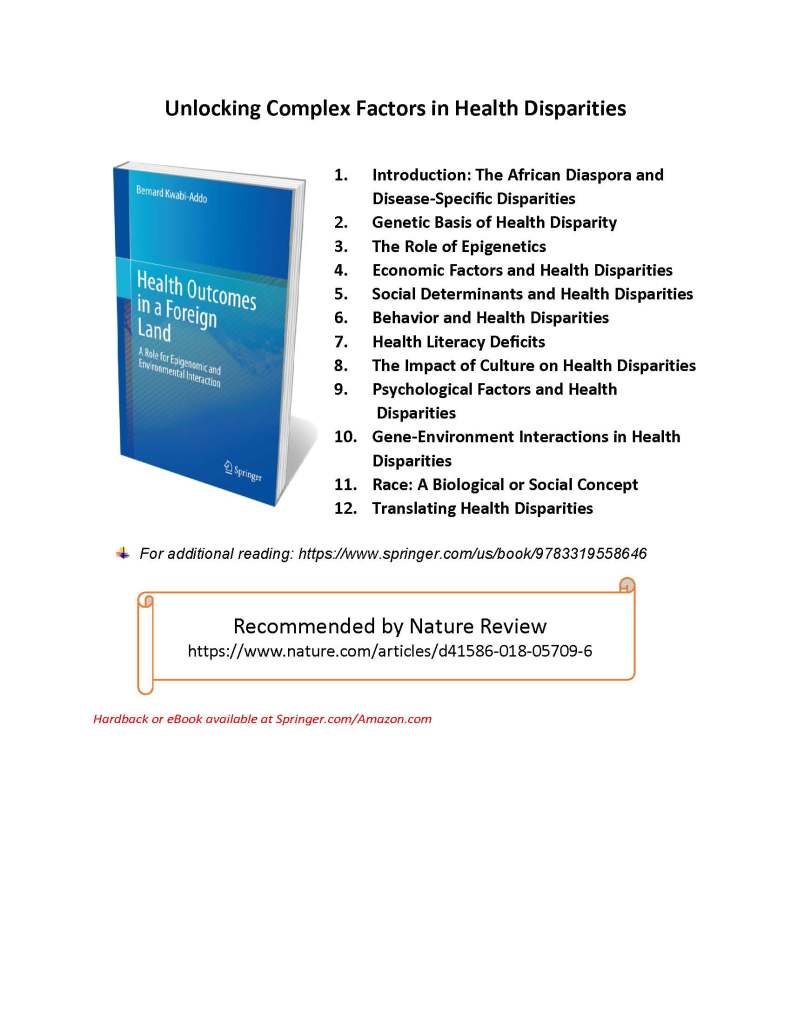
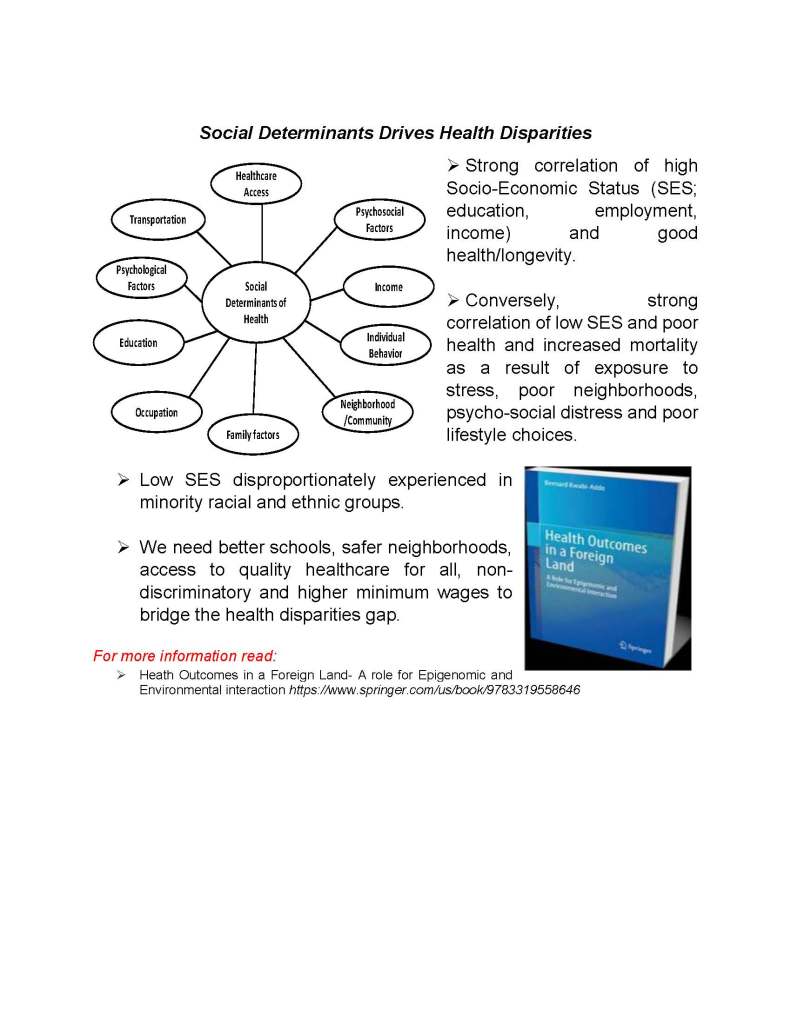
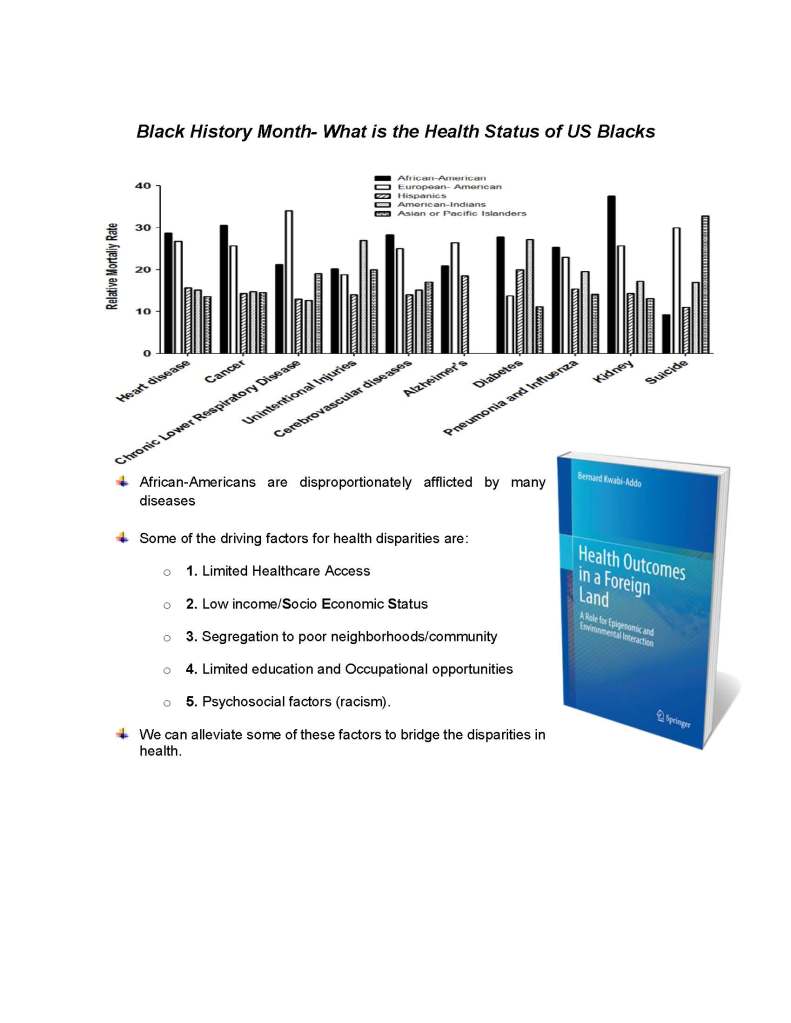
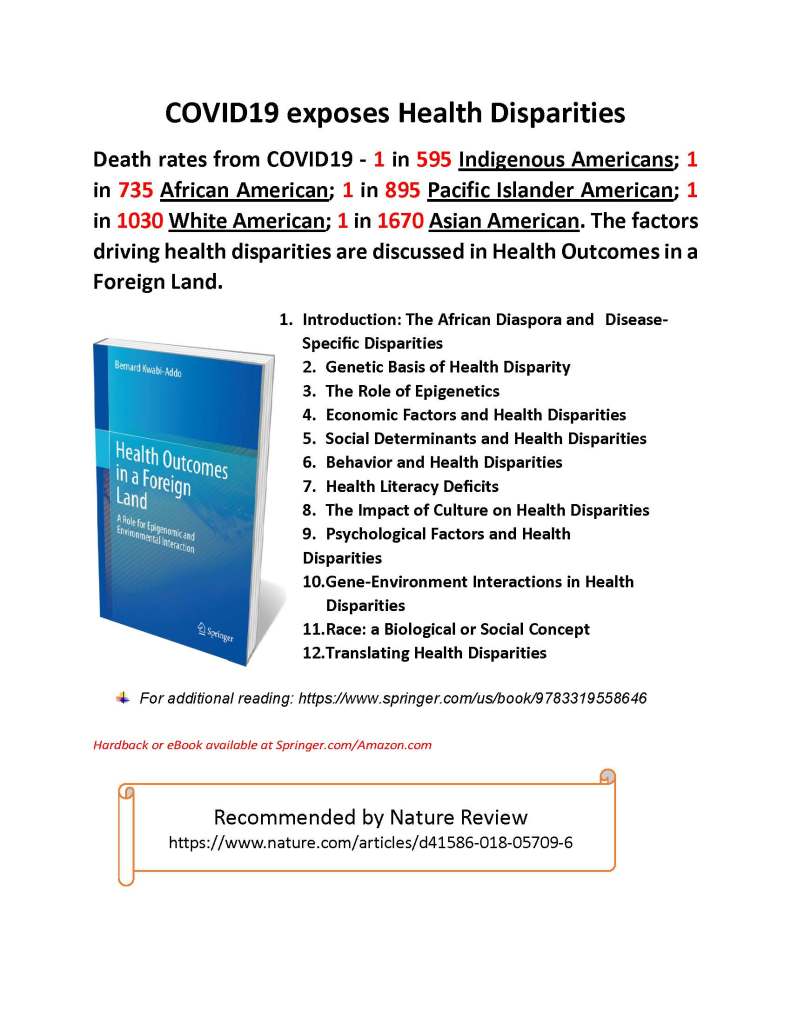
Micronutrients-rich spices: curcumin, turmeric, green and black tea, peppers, gingers, garlic and lemon have great anti-inflammatory properties for immune support and overall health.
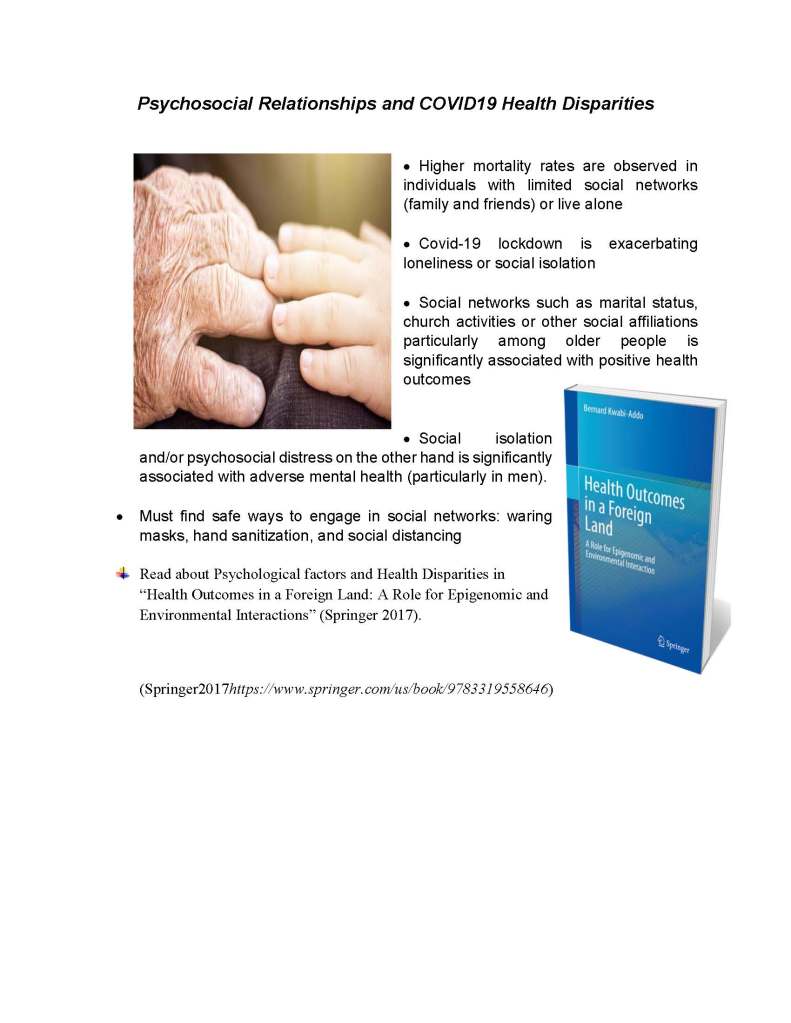
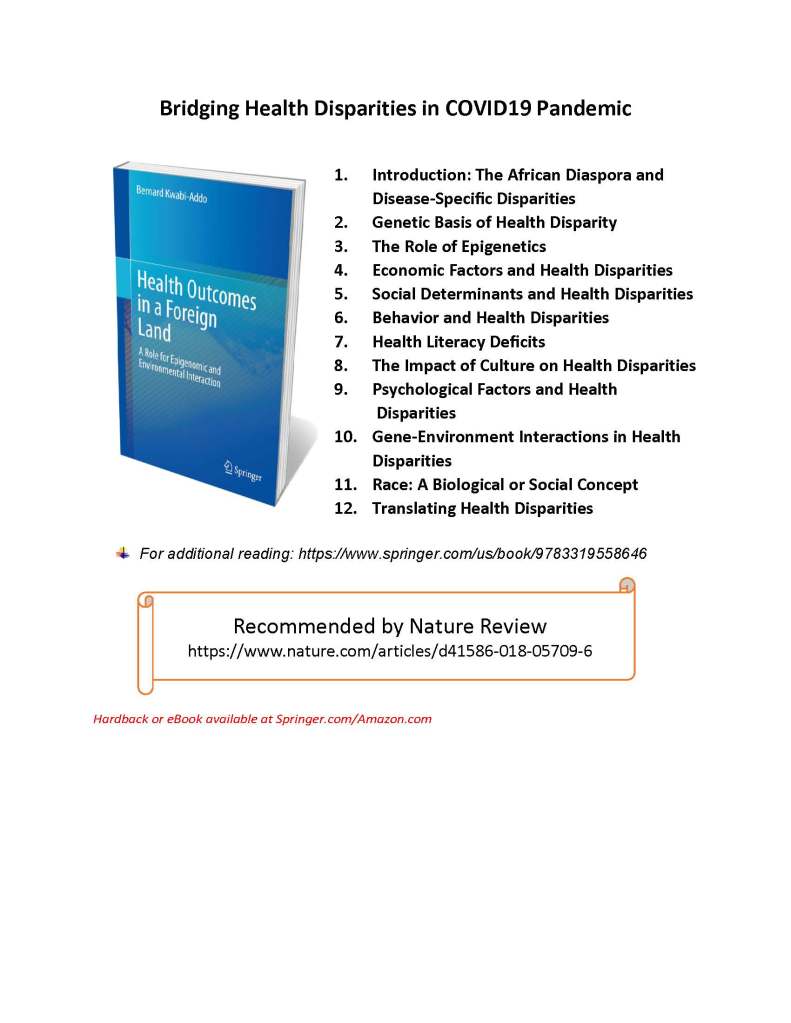
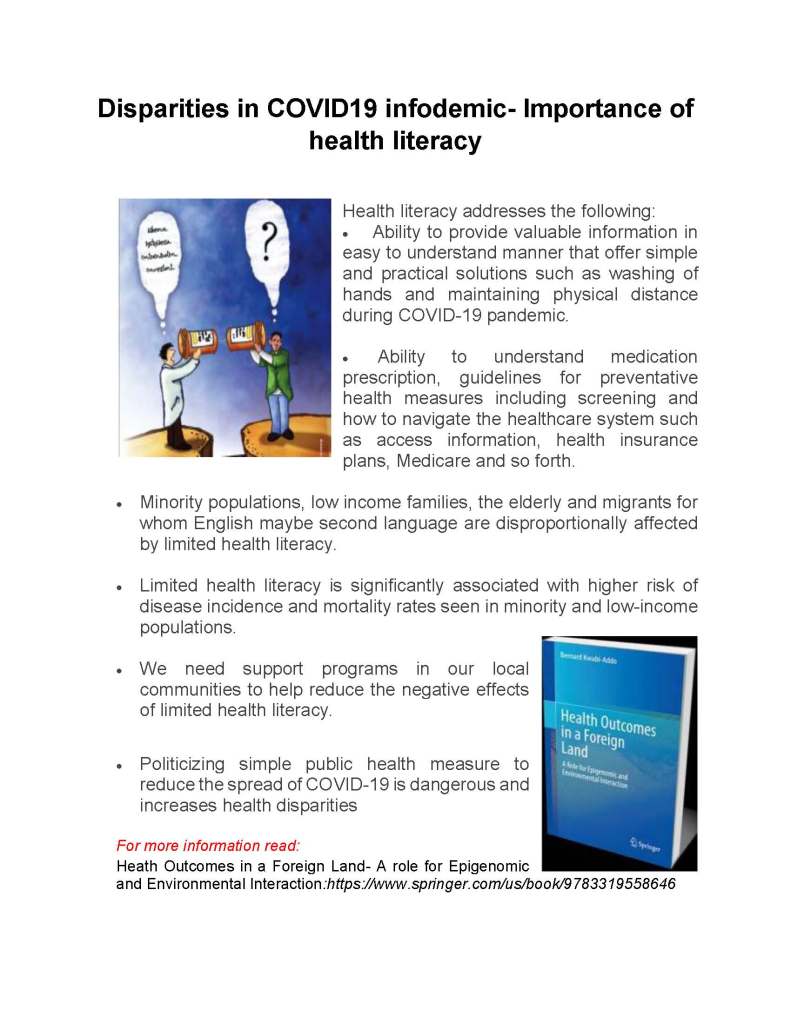
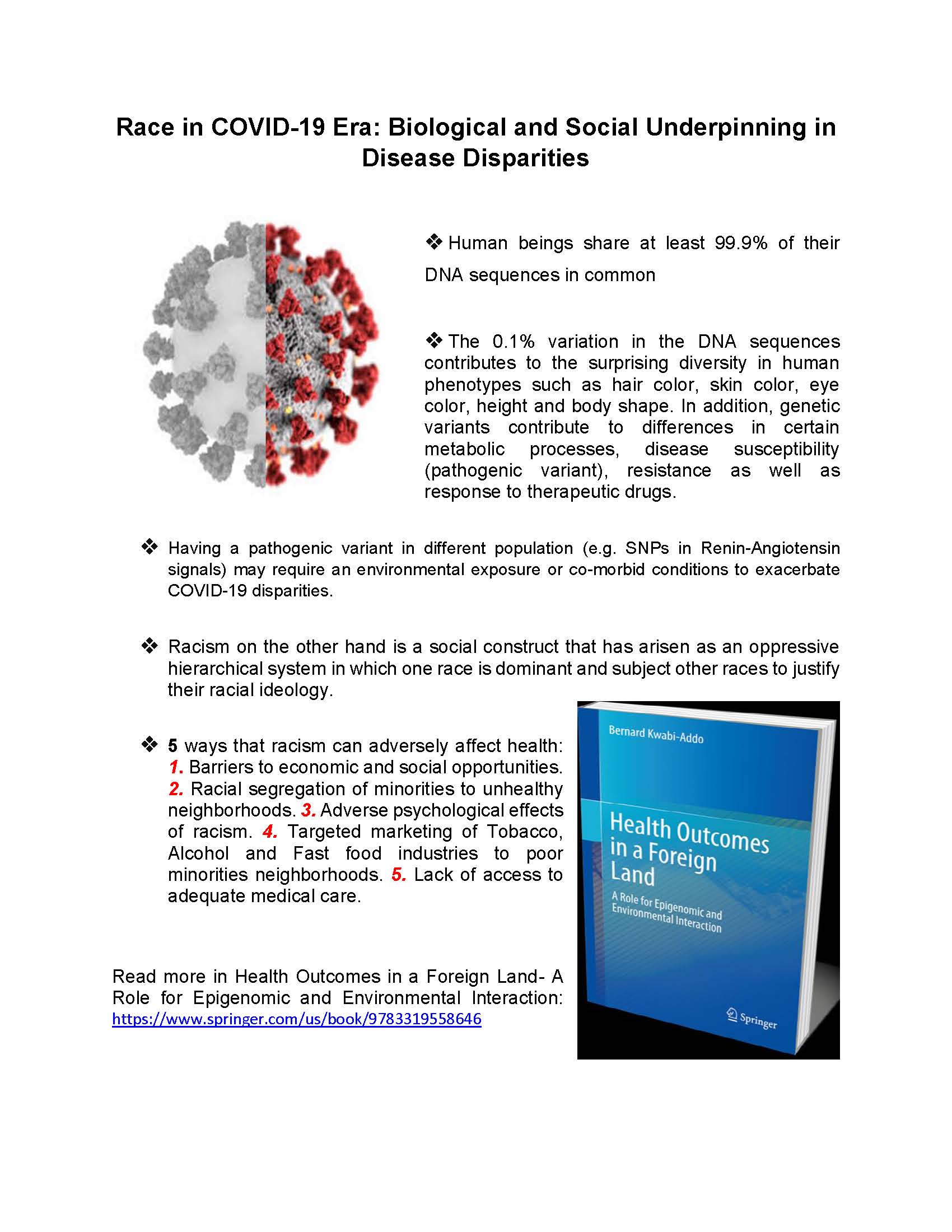
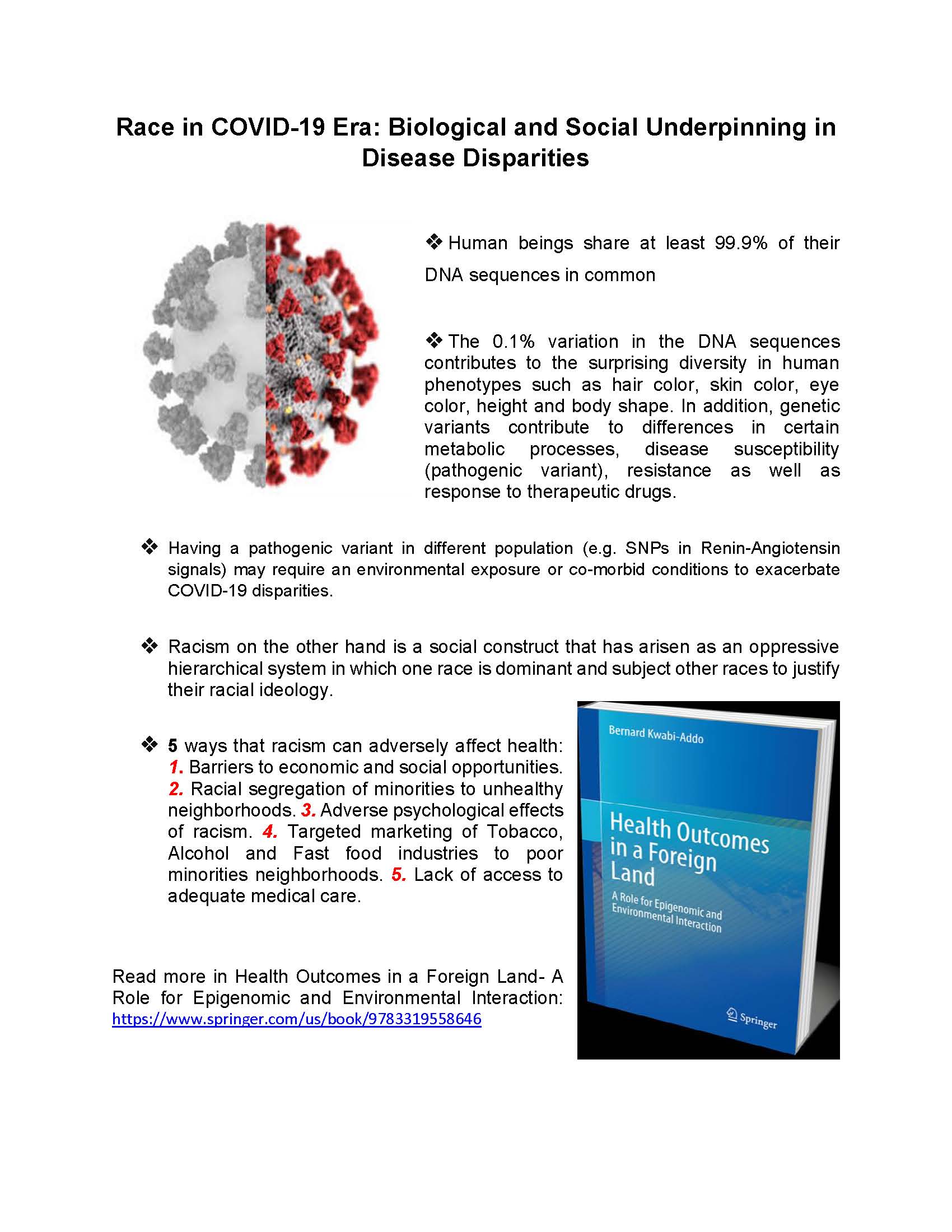

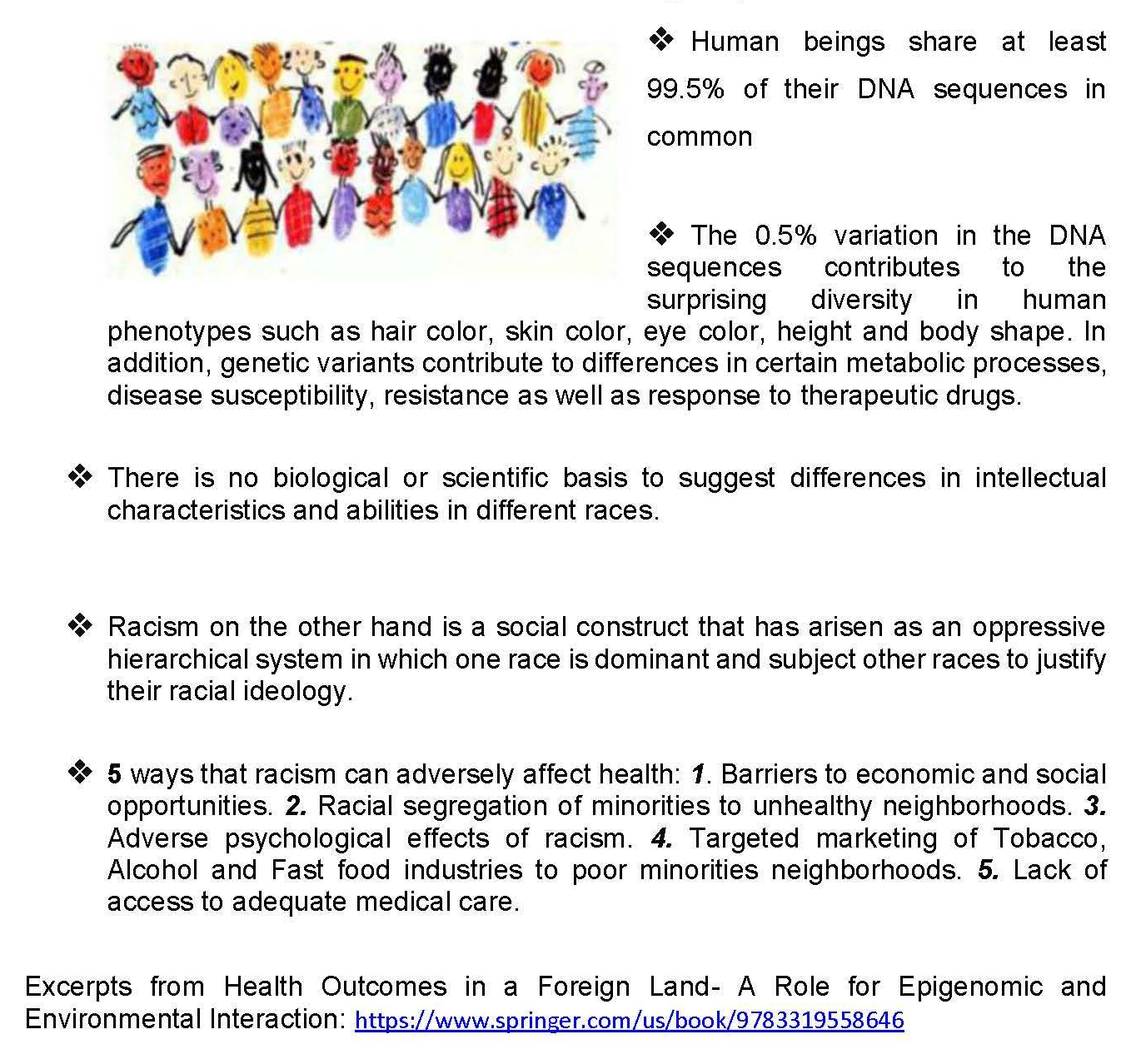

Health Disparities in Racial Minorities
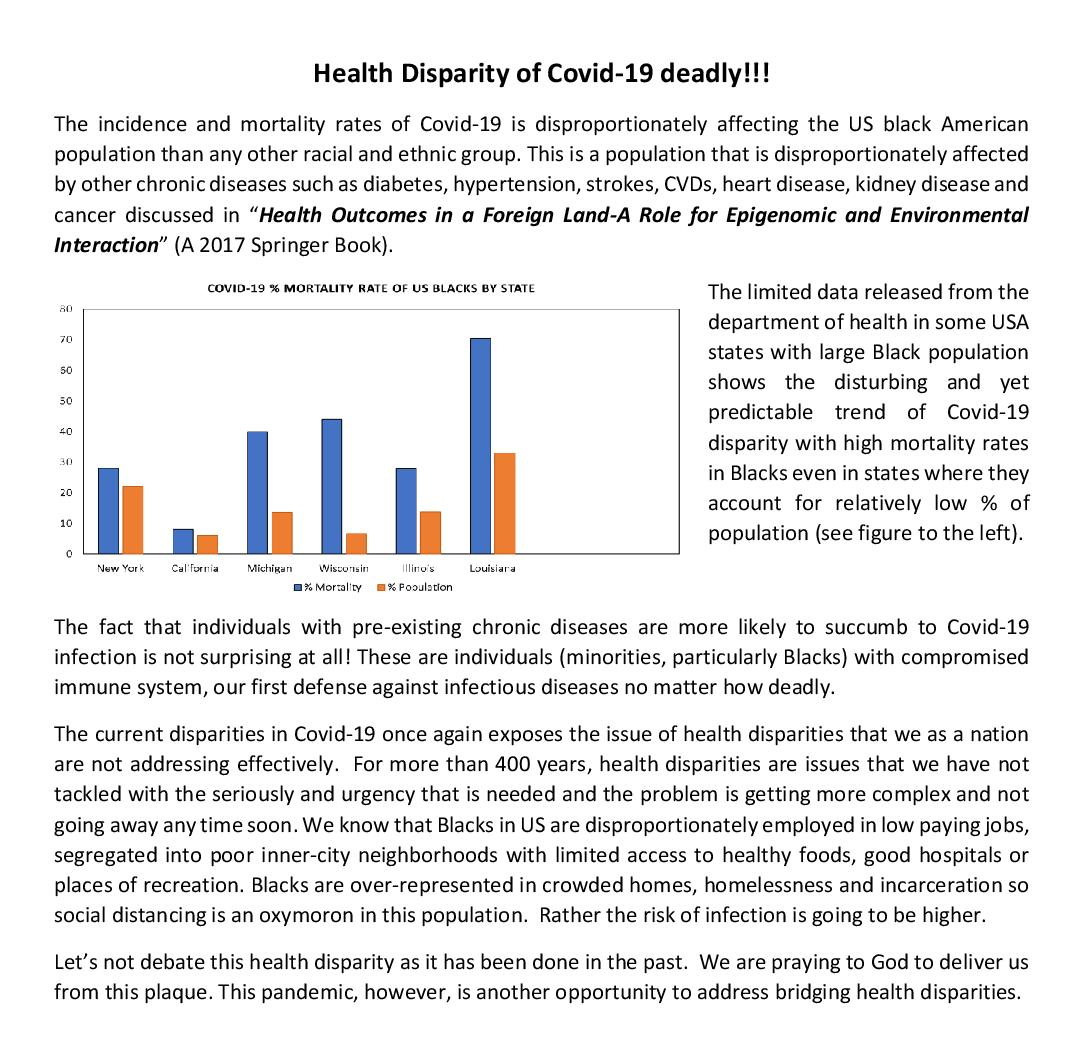
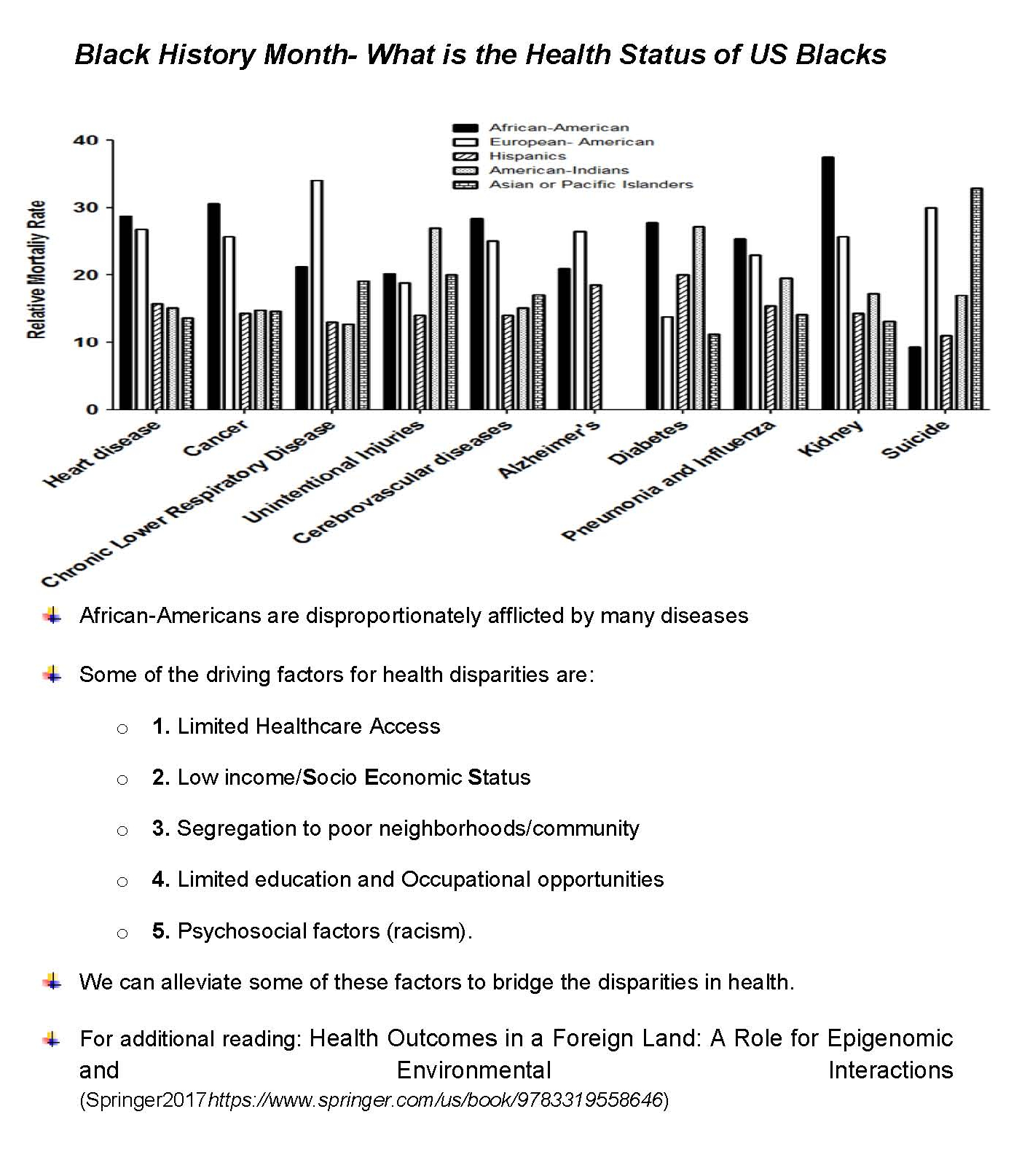

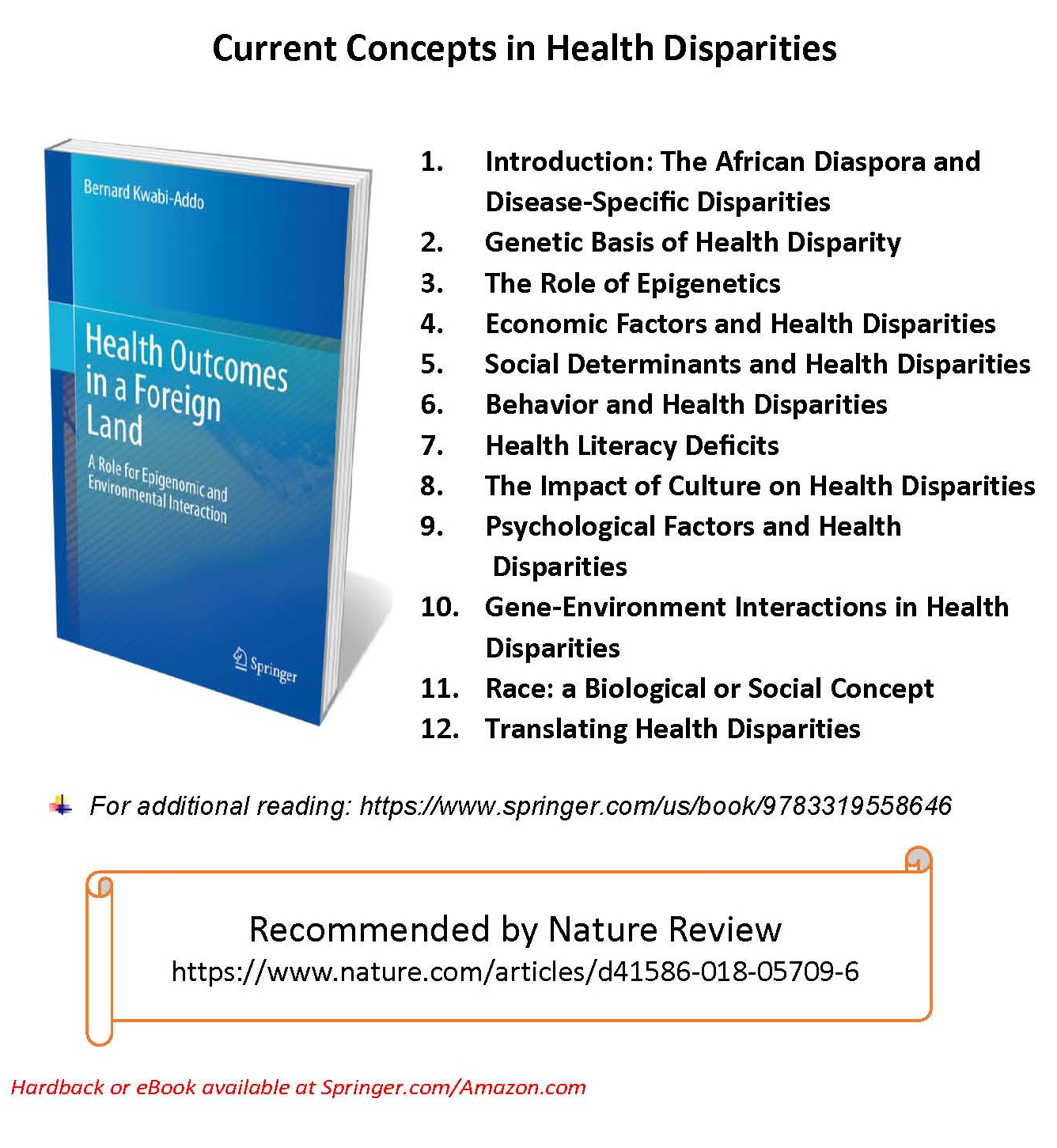
Gene-environment interaction and health disparities

Race classification in healthcare